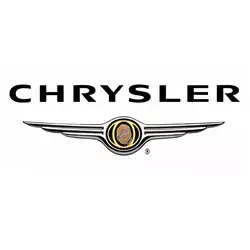Chrysler Aspen Tire Pressure
Most common recommended tire pressure for Chrysler Aspen is 33 psi based on year of production, trim and OEM tire size, but it maybe different for older models. It is imperative to confirm the exact tire inflation for your Chrysler Aspen to ensure safety on the road. Always refer to your vehicle owner's manual for the correct tire pressure designated by vehicle's manufacturer.
Select your Chrysler Aspen production year to see its recommended tire inflation.
| Model Year | Front Tires | Rear Tires |
|---|---|---|
| 2009 Chrysler Aspen | 33 psi | 33 psi |
| 2008 Chrysler Aspen | 33 psi | 33 psi |
| 2007 Chrysler Aspen | 33 psi | 33 psi |
Recommended Tire Pressure for Chrysler Aspen
Maintaining the recommended tire pressure for a Chrysler Aspen is crucial for several reasons that directly impact the safety, performance, and economic aspects of driving this vehicle. Firstly, correct tire pressure ensures optimal contact between the tire and the road, enhancing safety by improving handling, braking performance, and reducing the likelihood of tire blowouts, which can be both dangerous and costly. Furthermore, tires inflated to the proper pressure level exhibit less rolling resistance, which translates to better fuel efficiency, allowing drivers to maximize their miles per gallon and reduce the frequency of stops at the gas station. Additionally, keeping tires at their ideal pressure helps to evenly distribute the wear on the tire treads, extending the life of the tires, and thereby saving money on premature replacements. For the Chrysler Aspen, adhering to the manufacturer's recommended tire pressure not just safeguards the passengers by ensuring the vehicle operates under its intended safety parameters but also contributes to environmental conservation by improving fuel economy and reducing tire waste. Therefore, regularly checking and adjusting the tire pressure on your Chrysler Aspen is a simple yet impactful routine that benefits the driver, passengers, and the broader community.

All listed guides, data and/or calculations are for informational purposes only. TirePressure.com does not warrant or make any representations regarding the accuracy of or the results of the use of this information. Always refer to vehicle owner's manual for the correct tire pressure configuration.